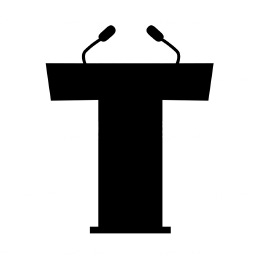
Books and publishing have proved their durability in a digital, Covid-19, streaming, TikTok, Instagram world. This piece is not about a looming catastrophe.
But given the outcome of Penguin Random House’s effort to acquire Simon & Schuster, and the decisive opinion of Judge Florence Pan in siding with the Department of Justice’s opposition on antitrust grounds, the situation at the “Big Five” -- PRH, S&S, HarperCollins, Hachette, and Macmillan -- is worth a look.
The assumption in the legal case was that the dominance of these five enterprises overwhelms the rest of publishing. That depends. The other day, I received a fifty-two-page brochure from the University of Chicago Press about its annual clearance sale. The range and scale of the books on offer was beyond impressive (press.uchicago.edu). By any measure, there are a great many books to choose from these days.
To the Five:
Penguin Random House. The failed merger cost Bertelsmann, the German owner of PRH, about $250 million, consisting of a $200 million breakup fee paid to Paramount, the owner of S&S, and another $50 million or so in legal expenses. Almost immediately, Markus Dohle, the charismatic global CEO of PRH, resigned. A few weeks later, Gina Centrello, who has long led the Random House Publishing Group, the flagship division, retired.
The new global CEO is Nihar Malaviya, who was elevated from the COO position at the U.S. company. Technically, he is “interim,” but he is expected to get the position permanently. Malaviya, I’m told, was Dohle’s right-hand person for data, systems, and process. He is not, in a traditional sense, a book publisher. But then, neither was Dohle when he arrived from the Bertelsmann printing divisions. The guidance from Gutersloh, I’m told, is for PRH to “run lean and gain market share,” chilling euphemisms for more changes. Bertelsmann is a family-owned company. The major decisions are made by them.
(And on Tuesday morning, minutes after this piece was posted, Madeline McIntosh, the chief executive of Random House U.S. announced thatr she too is leaving. “I’ve been in this job longer than any single job,” she told The Wall Street Journal”…I’m eager to learn new things and challenge myself in different ways.”
As for Simon & Schuster, Paramount still intends to sell “it. Other major publishing conglomerates doubtless will be mindful of the antitrust issues that derailed PRH’s bid. The likely result is that the buyer would be a major private equity company -- perhaps Elliott Management, which now owns Barnes & Noble -- or a billionaire, just as Jeff Bezos bought the Washington Post a decade ago. Other possible suitors may come from China or the Middle East; TikTok is Chinese-owned, for example, as is the new publishing company Astra. Saudi Arabia and the Emirates are awash in cash. Take that, DOJ!
HarperCollins is controlled by the Murdoch family, whose media holdings are separated into two companies. News Corp is where HarperCollins, the Wall Street Journal, the New York Post, and other publications reside. The other is Fox Corporation, the owner of Fox News, the most powerful purveyor of far-right, conspiracy-driven content in the United States. Last fall, Murdoch said that he wanted to combine the two companies. He tends to get his way, but he has now dropped the plan “at this time” because of “significant” investor opposition. Murdoch is ninety-one. The succession issue looms. My guess is that the writers, journalists, and public figures who publish at HarperCollins recognize that Fox News is actually a different entity.
What if, ultimately, it no longer is?
With an employee strike for better pay and work conditions still underway, CEO Brian Murray announced Monday that five percent of the HarperCollins employees would be laid off by June 30 because of the company’s lagging results.
Hachette Book Group has long been owned by Lagardère, another family-controlled but now publicly traded company, based in France. In an unfolding business saga, Vivendi, also a French publishing power, has been in the process of a takeover, currently under scrutiny by the European Union antitrust authorities with the outcome uncertain. (I should note that PublicAffairs, the imprint I founded, is now owned by Hachette.)
A takeover or merger will almost certainly mean a change of culture. The top investor in Vivendi, Vincent Bolloré, is often compared to Rupert Murdoch in his political sensibilities.
And finally, there is Macmillan, where Farrar, Straus & Giroux, a top-tier publisher, and many other major imprints are based. The ownership is Holtzbrinck Publishing Group, another German family-controlled multinational media conglomerate.
Macmillan’s respected CEO John Sargent resigned in 2020, citing “differences” with Holtzbrinck. Recently, Henry Holt and Company, another Macmillan stalwart, summarily shut down Metropolitan Books, a smaller, prestigious imprint and fired most of the staff. Clearly, this was a judgment about costs and not content. Former Holt publisher Stephen Rubin has just released a memoir, Words and Music: Confessions of an Optimist (Applause Books), which is scathing about many people he has worked with over the years, especially the person who replaced him at Holt.
So, there you have it. The mighty five have their troubles. This piece is by necessity granular about the publishing industry and may be more than readers want to know. As an aside, the major news organizations that used to cover book publishing very closely no longer do so. New York magazine’s Intelligencer did publish an article on PRH and S&S, which is worth reading. But when Gina Centrello, an established presence in the country’s largest publisher, “retired” (as the cliché goes) I did not see a word anywhere but a few publishing newsletters.
Perhaps that is because it is now recognized that – unlike Twitter, Tesla, and all matters Musk -- books, good books, are an enduring part of our lives.




You are thinking of Houghton Mifflin which. Is now subsumed at HarperCollins. I don't think the name is still used. It was one of the greats.
Where does the old Holt & Mifflin fit into all this?